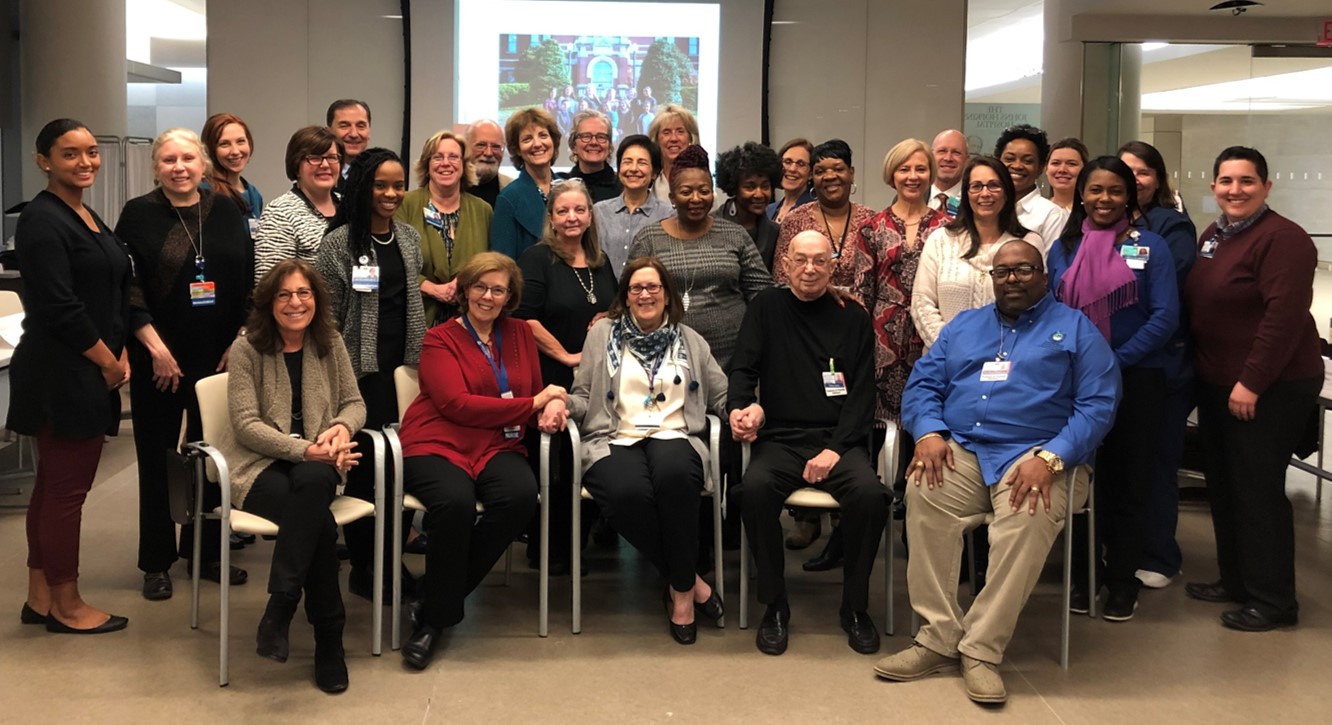
Johns Hopkins Medicine combines over 125 years of commitment to community care with groundbreaking research, teaching and medical services to patients worldwide. Across Johns Hopkins Medicine’s six hospitals, Home Care Group, and Johns Hopkins Community Physicians practices, there are more than twenty active PFACs with over 500 members, usually meeting monthly, in person.
It was clear by mid-March 2020 that typical PFAC operations, including in-person meetings, were no longer a viable option due to the COVID-19 situation. However, it was critical to ensure that the PFAC operations continued without pause, and that the organization broadcast its commitment to collaboration and patient- and family-centered care. The team responsible for Johns Hopkins Medicine PFACs worked quickly to communicate to the PFAC network, schedule multiple training sessions for virtual meeting tools, and establish a PFAC newsletter to be distributed on an ongoing basis during the pandemic. The majority of the Johns Hopkins Medicine PFACs have continued their monthly meetings without pause, using virtual tools to communicate.

The Johns Hopkins Hospital Patient and Family Advisory Council
Under normal circumstances, Johns Hopkins Medicine welcomes family presence 24/7. As stay-at-home orders put restrictions on hospital and outpatient services and visitation, the patient experience team at each entity worked to ensure the availability of virtual visitation, first and foremost. The majority of in-patient rooms are now equipped with a Johns Hopkins-issued tablet that has MyChart Bedside, a web browser and a video conferencing app. For the sickest patients — those in the intensive care unit — hospital-issued iPads will soon feature an app to help ward off delirium, as well as an app that allows patients who can’t speak to point to sensations like hunger, thirst, and pain. Other amenities include virtual concerts from Peabody Institute musicians; guidance on how to use video, audio and texting apps created in partnership with Patient Education and IT; and consults with doctors that families can join remotely.
As the world changes and adapts to the ongoing pandemic, the work of the Johns Hopkins Medicine PFACs will continue to adapt and change, as well. In the short time between March and May 2020, PFAC members have engaged in time-sensitive COVID-19 related projects. Members volunteered to be “test family members” for medical students to call, preparing them for hard conversations with family members who have a loved one in the Medical Intensive Care Unit. A subcommittee of PFAC members was formed to review COVID-19 web content for compassionate language and understandability. Finally, as the organization moves back in the direction of patient- and family-centered policies like family presence at the bedside and opening up elective surgeries and outpatient appointments, hospital leaders will rely on PFAC members and broader patient and community feedback to establish new norms in a collaborative, communicative fashion.